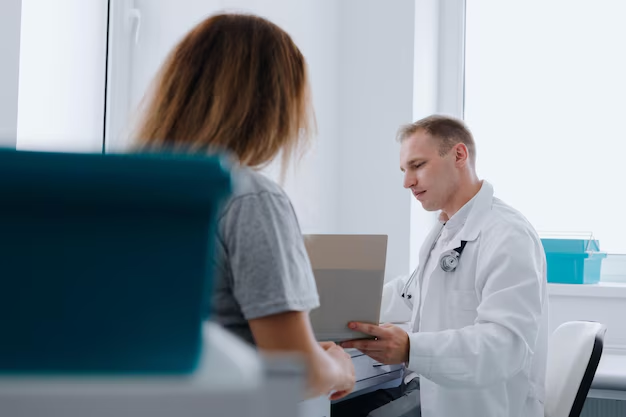What Causes Liver Cancer? Understanding Risks and Prevention
When you think of the liver, its role as a vital organ that processes nutrients and filters toxins comes to mind. But when liver cells begin to grow uncontrollably, leading to liver cancer, it can challenge the body's equilibrium. Understanding how liver cancer develops is integral to taking proactive measures against it. In our exploration today, we’ll uncover essential information about how liver cancer occurs, key risk factors, and how lifestyle choices may influence your liver health.
Delving into Liver Cancer: A Brief Overview
Liver cancer develops when normal liver cells transform into abnormal ones that multiply uncontrollably, forming a tumor. There are several types, with the most common being hepatocellular carcinoma (HCC). Other forms include intrahepatic cholangiocarcinoma and hepatic angiosarcoma.
The Irreplaceable Role of the Liver
Before diving deeper, it's crucial to appreciate the liver's function:
- Detoxification: Cleanses the blood of toxins and by-products.
- Synthesis: Produces essential proteins like albumin and clotting factors.
- Storage: Reserves energy by storing glucose as glycogen.
- Bile Production: Facilitates fat digestion and absorption.
Given these roles, impairments due to cancer can dramatically impact overall health.
Identifying the Culprits: How Do We Get Liver Cancer?
1. Chronic Viral Infections: Silent Predators
Two viral infections, Hepatitis B and Hepatitis C, are primary culprits behind many liver cancer cases.
Hepatitis B: It’s highly infectious and can be transmitted through blood, sexual contact, or from mother to child during birth. It often becomes chronic, increasing liver damage over time.
Hepatitis C: This virus spreads primarily through blood contact, such as sharing needles. Chronic Hepatitis C often leads to liver inflammation, fibrosis, and eventually liver cancer.
2. Alcohol and Substance Use: The Double-Edged Sword
Excessive alcohol consumption is not only a precursor to liver damage but also a festering ground for liver cancer. Chronic alcoholism can lead to cirrhosis, a condition marked by scarring and loss of function, significantly increasing cancer risk.
3. Non-Alcoholic Fatty Liver Disease (NAFLD): The Underestimated Risk
NAFLD is an alarming condition wherein fat accumulates in the liver unrelated to alcohol intake. With obesity and diabetes on the rise, so is the prevalence of NAFLD, which can progress to cirrhosis or liver cancer.
4. Exposure to Aflatoxins: Hidden Threats in Filthy Foods
Aflatoxins are carcinogenic substances produced by molds on improperly stored grains and nuts. Consuming foods contaminated with aflatoxins is a notable risk factor, especially in developing regions with poor food storage systems.
5. Genetic Predispositions and Rare Disorders
Hereditary conditions such as hemochromatosis (excess iron storage) and Wilson's disease (excess copper storage) significantly impact liver health if untreated. A family history of liver cancer can herald a higher risk, suggesting a genetic predisposition.
Navigating Prevention and Risk Reduction
Understanding the risk factors is a stepping stone to prevention. Here’s how you can proactively safeguard your liver:
Vaccination and Regular Screening
Hepatitis Vaccinations: Vaccines for Hepatitis A and B are available and can prevent virus infection, reducing the risk of liver cancer substantially.
Routine Screening: Especially for those with chronic Hepatitis infections or cirrhosis; early detection through ultrasounds and blood tests helps monitor liver health.
Promoting a Healthy Lifestyle
Limit Alcohol Intake: Moderation is key. Reducing alcohol consumption can significantly decrease the risk of liver-related complications.
Exercise and Diet: Regular physical activity and a balanced diet help maintain an optimal weight and reduce the risk of NAFLD. Choose a diet rich in fruits, vegetables, whole grains, and lean proteins.
Avoiding Toxins and Unsafe Practices
Safe Chemical Handling: Minimizing exposure to toxic chemicals both at work and home protects the liver.
Nutrition Awareness: Be aware of aflatoxins—properly store grains and nuts to avoid mold contamination.
Genetics and Environment: The Twin Edges
Tackling Hereditary Factors
While family history can predispose you to liver cancer, early intervention and lifestyle modifications can majorly mitigate risks. Genetic testing for those with a notable family history helps in early detection and preventive measures.
Balancing with Environmental Considerations
Occupational and geographic influences, especially in agriculture and food processing, necessitate regular health checks and adherence to safety protocols.
The Bigger Picture: Awareness and Knowledge
The truth about liver cancer opens doors to broader conversations about health and prevention. Greater awareness about risk factors transforms into:
- Education: Communities must be educated about virus transmission and the importance of vaccinations.
- Improved Healthcare Access: Ensuring availability and access to vaccines and routine health screenings, especially in at-risk populations.
Ultimately, early diagnosis and lifestyle changes promise a brighter outlook for liver health. Raising the flag on various causative factors empowers you with the knowledge to make informed, health-centric decisions daily.
In Summary:
Understanding liver cancer involves recognizing its multifaceted causes and adopting preventive lifestyles. Here's a concise summary to guide your journey to liver health:
- ⚠️ Risk Factors: Viral hepatitis, alcoholism, NAFLD, aflatoxins, genetic conditions
- 🛡️ Prevention: Vaccinations, screening, moderation in alcohol, balanced diet, exercise
- 🔍 Awareness: Education, healthcare access, lifestyle adjustments
Staying informed and proactive is your strongest defense against the development of liver cancer. With knowledge at your fingertips, healthy liver function is within your reach.

Related Articles
- Are Breast Cancer Lumps Painful
- Are Chills a Sign Of Cancer
- Are Colon Spasms a Sign Of Cancer
- Are Lytic Lesions Always Cancer
- Are Polyps Cancer
- Can a Blood Test Detect Cancer
- Can a Ct Scan Detect Cancer
- Can a Dexa Scan Show Cancer
- Can a Gastric Emptying Scan Show Cancer
- Can a Lung Biopsy Cause Cancer To Spread
